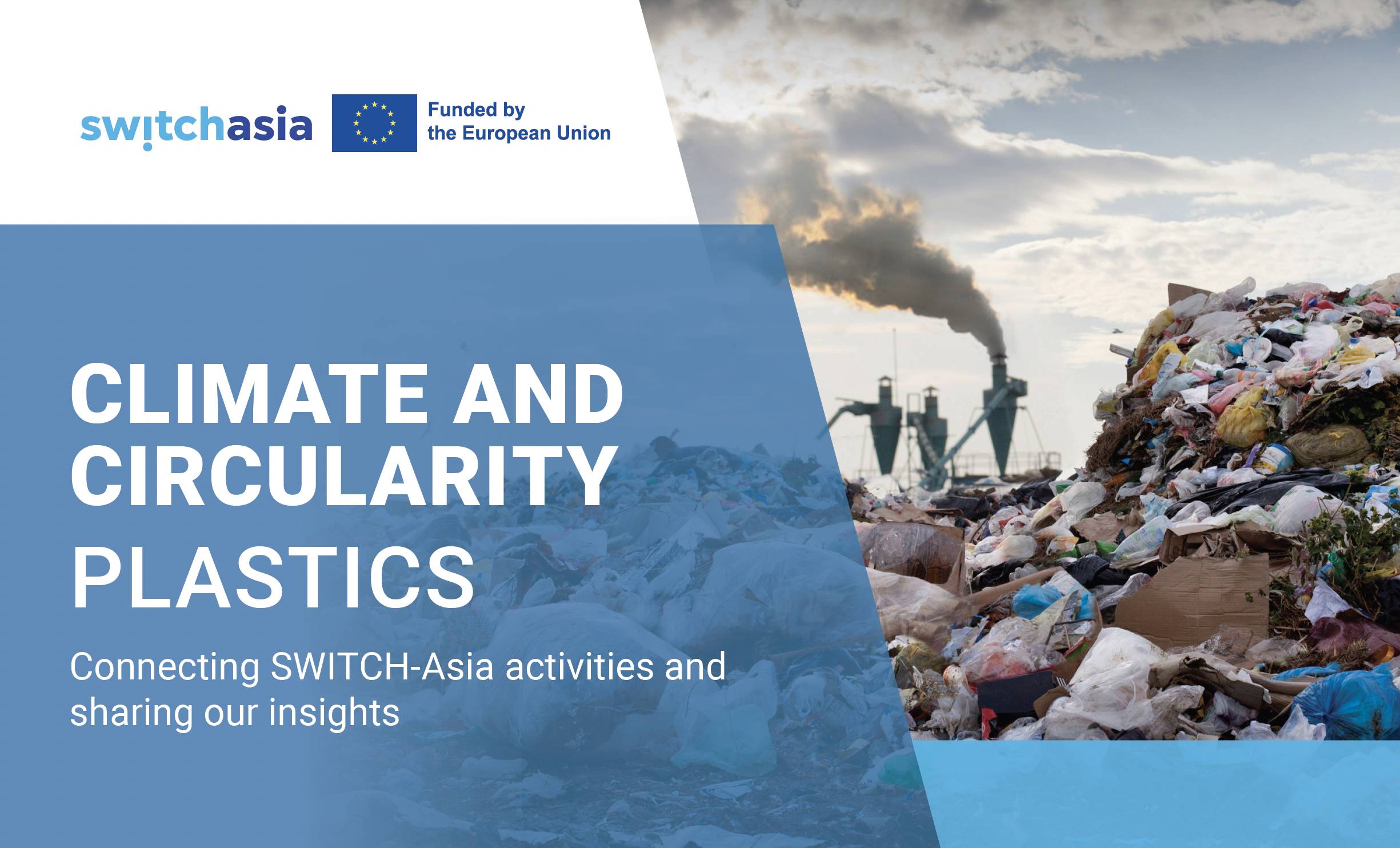
A world without plastics seems unimaginable today, yet large-scale plastic production and use dates back only to the 1950s. The rapid growth in plastics production is extraordinary, surpassing that of most other human-made materials. This is because of their versatility and usefulness in day-to-day life. But this material is also problematic, as most plastic items end up being ‘leaked’ out of the production and consumption system, where they become dangerous for humans and the environment. This current linear production and consumption system results in an ongoing need for new plastics to be produced from fossil sources – mostly oil – and it perpetuates constant demand.
The EU in general and its SWITCH-Asia Programme in particular have recognised the critical importance of the plastics sector to further promote sustainability through SCP, making the plastics cluster a major pillar of their activities. Technical assistance is provided by the Policy Support Component (PSC) at government level and through the Grants Programme to support the SCP-relevant entrepreneurs and small and medium-sized enterprises (SMEs) in the regions.


